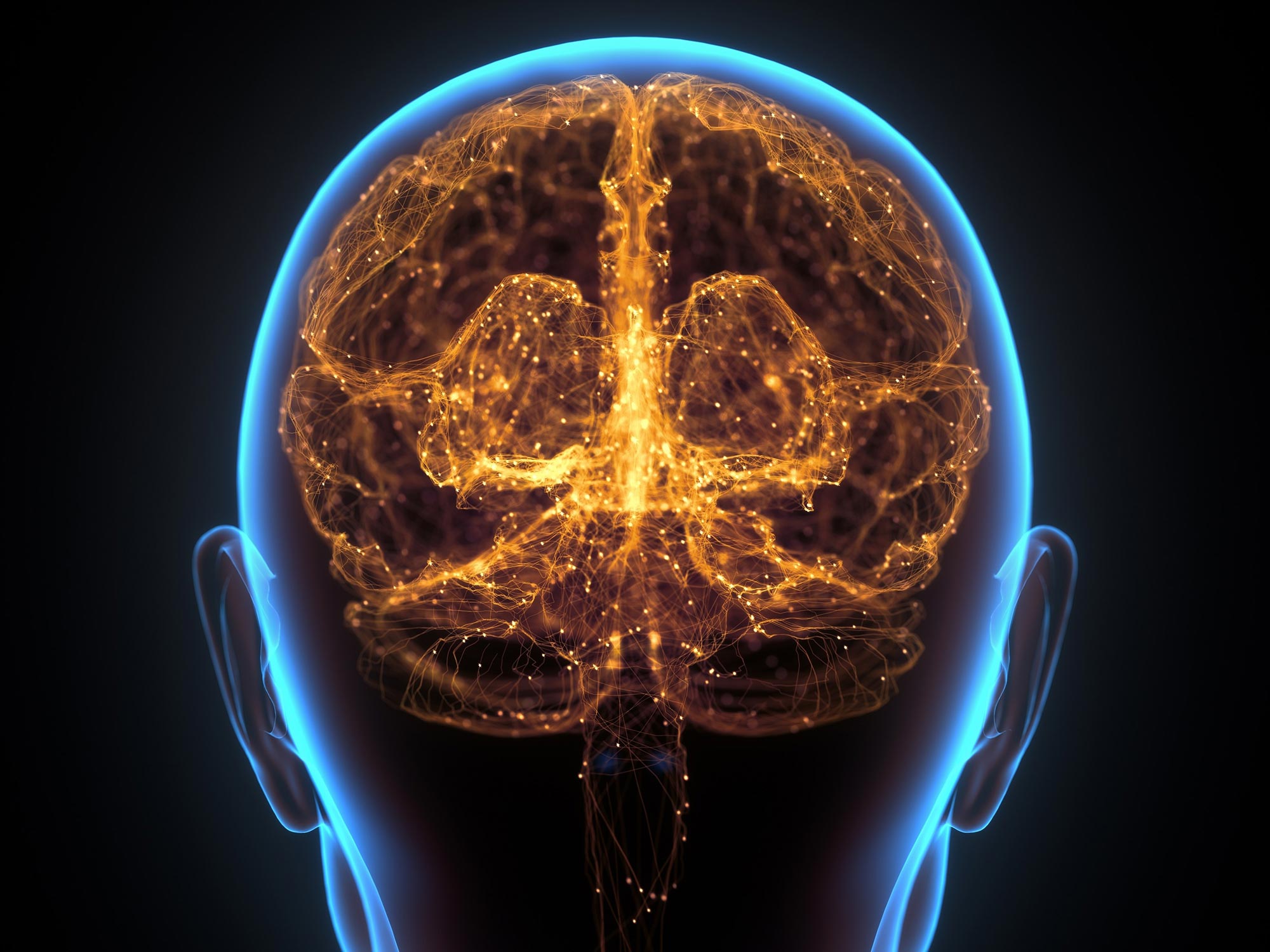
새로운 연구에서는 신경망 활동에 의해 생성된 뇌 전기장이 신경망의 안정성과 효율성을 향상시키기 위해 뉴런의 하위 세포 구성 요소의 물리적 구성에 영향을 미칠 수 있다고 주장하는 “세포 전기적 결합”이라는 가설을 제안합니다. MIT, City University of London 및 Johns Hopkins University의 과학자들이 수행한 이 연구는 리드미컬한 전기적 활동 또는 ‘뇌파’가 신경망에서 조정되고 분자 수준에서 전기장에 영향을 미치고 조정하는 방법을 보여주는 이전 연구를 기반으로 합니다. 뇌 기능을 향상시키고 유연한 인지를 촉진합니다.
뇌파는 정보 전달자 역할을 합니다. 최근 제안된 “세포-전기 결합” 가설은 이러한 진동하는 전기장이 뇌 네트워크 효율성 및 강도 향상에 기여한다고 제안합니다. 그들은 뇌의 분자 구조의 물리적 구성에 영향을 미침으로써 이를 수행합니다.
생각을 포함하는 다면적인 기능을 수행하기 위해 뇌는 다양한 수준에서 작동합니다. 대상 또는 시각화와 같은 정보는 신경망 간의 동기화된 전기적 활동을 통해 캡처됩니다. 동시에, 각 뉴런 내부 및 주변의 단백질 및 기타 생화학 물질 호스트는 이러한 네트워크에 참여하는 데 필요한 메커니즘을 수행합니다.
MIT, City University of London, Johns Hopkins University의 연구원들이 수행한 새 논문에서는 네트워크 전기장이 뉴런의 하위 세포 구성 요소의 물리적 구성에 영향을 주어 네트워크 안정성과 효율성을 향상시킨다고 가정합니다. 저자는 이를 “세포 전기”라고 부릅니다. 커플 링.”

출연 얼 K. Miller가 Picquer Institute for Learning and Memory에서 최근 작업에 대해 강의하고 있습니다. 신용: MIT Picower 연구소
얼 K.는 이렇게 말했습니다. Miller, 미시간 대학교 Picower Institute for Learning and Memory의 Picower 교수[{” attribute=””>MIT, who co-authored the paper in Progress in Neurobiology with Associate Professor Dimitris Pinotsis of MIT and City —University of London, and Professor Gene Fridman of Johns Hopkins.
“The brain adapts to a changing world,” Pinotsis said. “Its proteins and molecules change too. They can have electric charges and need to catch up with neurons that process, store, and transmit information using electric signals. Interacting with the neurons’ electric fields seems necessary.”
Thinking in fields
A major focus of Miller’s lab is studying how higher-level cognitive functions such as working memory can rapidly, flexibly, and yet reliably emerge from the activity of millions of individual neurons. Neurons are capable of dynamically forming circuits by creating and removing connections, called synapses, as well as strengthening or weakening those junctions. But, that merely forms a “roadmap” around which information could flow, Miller said.
The specific neural circuits that collectively represent one thought or another, Miller has found, are coordinated by rhythmic activity, more colloquially known as “brain waves” of different frequencies.
Fast “gamma” rhythms help transmit images from our vision (e.g. a muffin), while slower “beta” waves might carry our deeper thoughts about that image, (e.g. “too many calories”). Properly timed, bursts of these waves can carry predictions, enable writing in, holding onto, and reading out information in working memory, Miller’s lab has shown.
They break down when working memory does, too. The lab has reported evidence that the brain might distinctly manipulate rhythms in specific physical locations to further organize neurons for flexible cognition, a concept called “Spatial Computing.”
Other recent work from the lab has shown that while the participation of individual neurons within networks may be fickle and unreliable, the information carried by the networks they are part of is stably represented by the overall electric fields generated by their collective activity.
Cytoelectric coupling
In the new study, the authors combine this model of rhythmic electrical activity coordinating neural networks with other lines of evidence that electrical fields can influence neurons at the molecular level.
Researchers, for example, have studied ephaptic coupling, in which neurons influence each other’s electrical properties via the proximity of their membranes, rather than solely relying on electrochemical exchanges across synapses. This electrical cross-talk can affect neural functions including when and whether they spike to relay electrical signals to other neurons in a circuit.
Miller, Pinotsis, and Fridman also cite research showing other electrical influences on cells and their components including how neural development is guided by fields and that microtubules can be aligned by them.
If the brain carries information in electric fields and those electric fields are capable of configuring neurons and other elements in the brain that form a network, then the brain is likely to use this capability. The brain can use fields to ensure the network does what it is supposed to do, the authors suggest.
To put it (loosely) in couch potato terms, the success of a television network isn’t just its ability to transmit a clear signal to millions of homes. What’s also important is the details as fine as the way each viewer household arranges its TV, sound system, and living room furniture to maximize the experience. Both in this metaphor and in the brain, Miller said, the presence of the network motivates the individual participants to configure their own infrastructure to participate optimally.
“Cytoelectric Coupling connects information at the meso‐ and macroscopic level down to the microscopic level of proteins that are the molecular basis of memory,” the authors wrote in the paper.
The article lays out the logic inspiring Cytoelectic Coupling. “We’re offering a hypothesis that anybody can test,” Miller said.
Reference: “Cytoelectric coupling: Electric fields sculpt neural activity and “tune” the brain’s infrastructure” by Dimitris A. Pinotsis, Gene Fridman and Earl K. Miller, 18 May 2023, Progress in Neurobiology.
DOI: 10.1016/j.pneurobio.2023.102465
The study was funded by the United Kingdom Research and Innovation (UKRI), the U.S. Office of Naval Research, The JPB Foundation, and The Picower Institute for Learning and Memory.

“경순은 통찰력 있고 사악한 사상가로, 다양한 음악 장르에 깊은 지식을 가지고 있습니다. 힙스터 문화와 자연스럽게 어우러지는 그의 스타일은 독특합니다. 그는 베이컨을 좋아하며, 인터넷 세계에서도 활발한 활동을 보여줍니다. 그의 내성적인 성격은 그의 글에서도 잘 드러납니다.”
